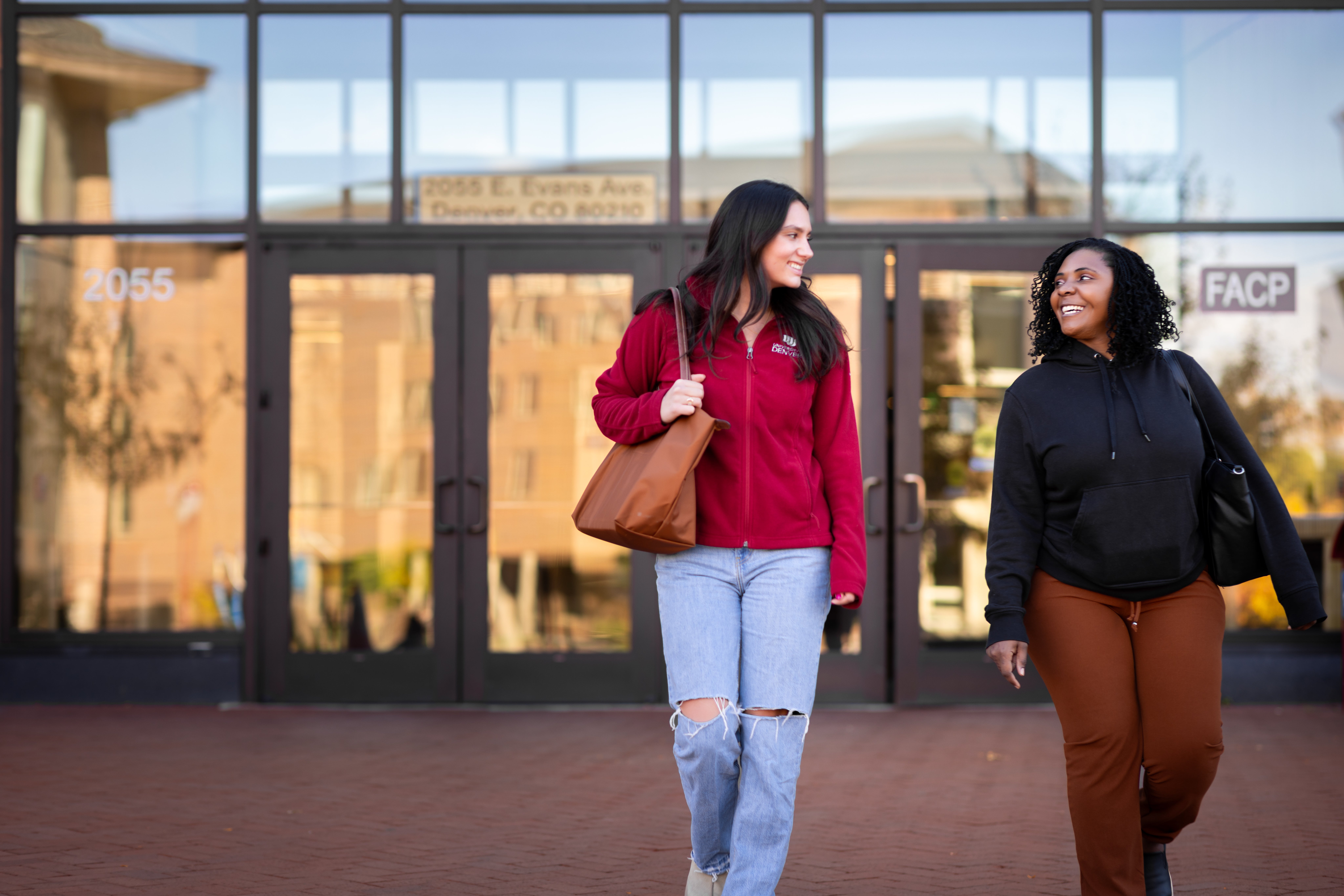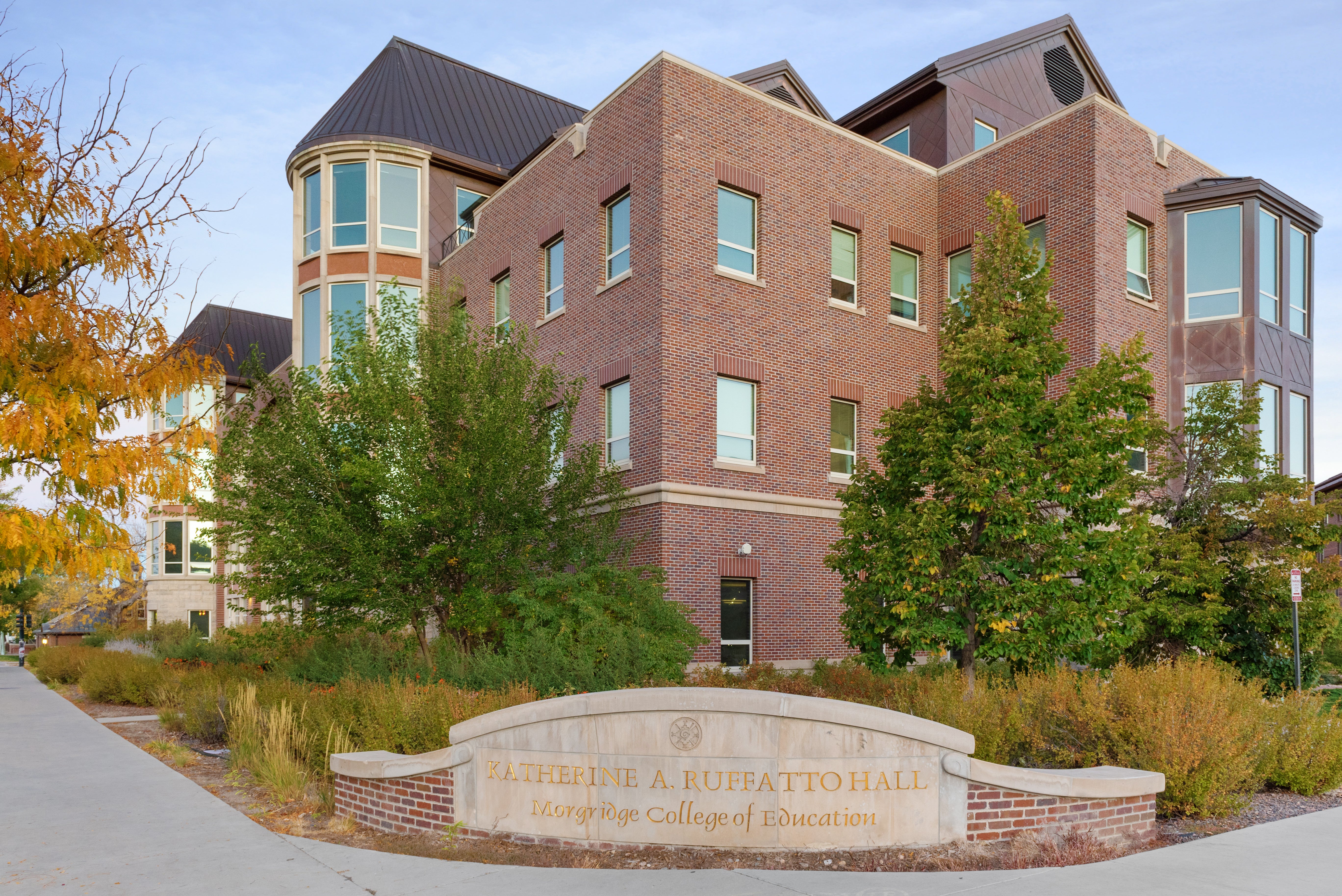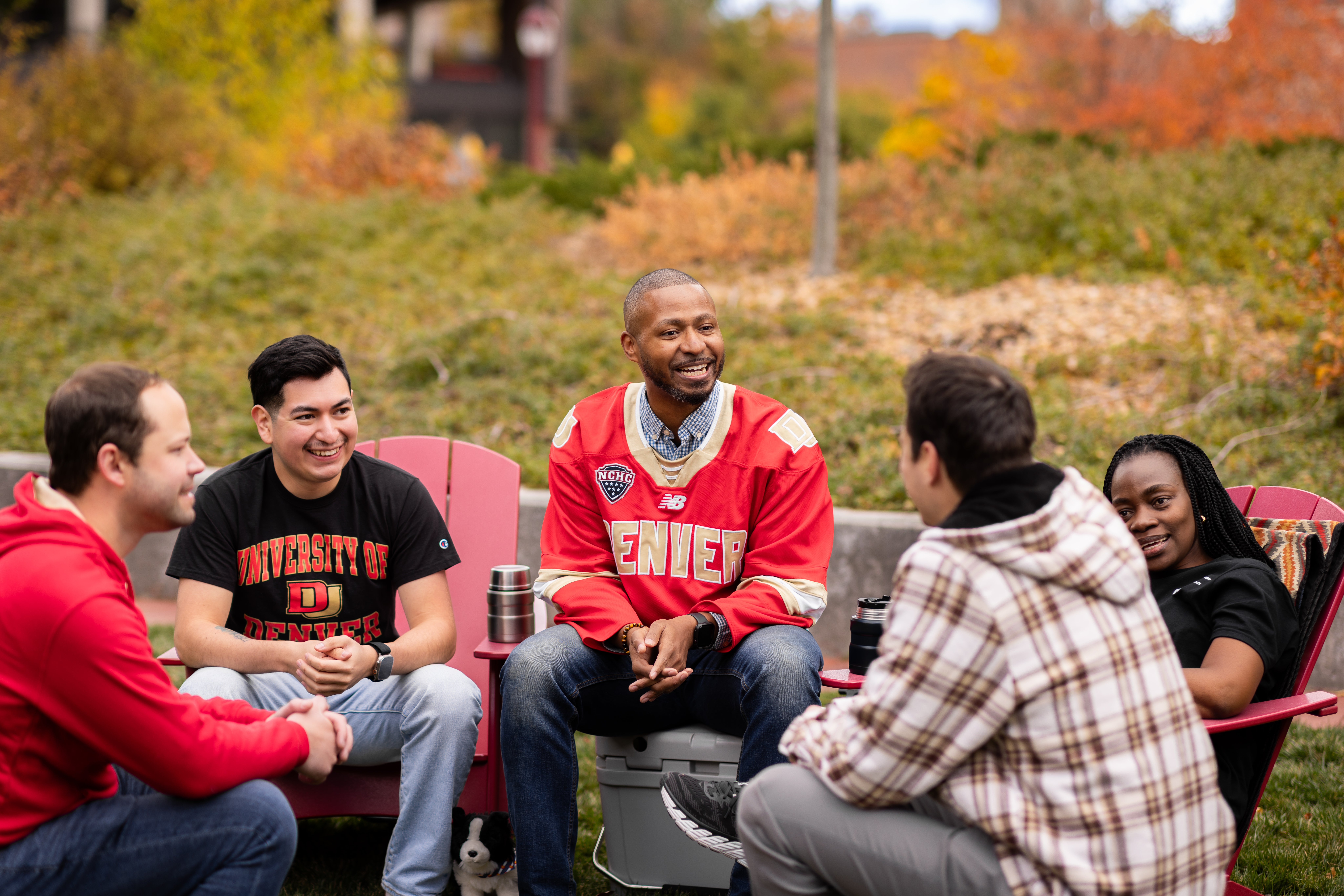HED Engaged Report 2023
Contents
Welcome Letter
From Dr. D-L Stewart, Our Department Chair
Greetings,
I am delighted to share the Morgridge College of Education (MCE), Higher Education Department’s (HED) third edition of the Engaged report. This edition highlights the achievements of our students, faculty, staff, and alumni since 2019. We have continued our commitment to equity and justice and updated our department mission — now a statement of Commitments — to document how we want to show up in our work and how we want to be held accountable.
A running theme in our commitments is that we see postsecondary education as part of a broader ecosystem of community-held knowledge and insight, and as a means of transformation. We honor the various pathways through which people come into higher education and the varied purposes that differentiated postsecondary institutions serve.
In the four years since the January 2019 HED Engaged report was released, significant changes buffeted postsecondary education and the world as a whole. COVID-19 caused significant disruptions to all aspects of pre-pandemic life, including the teaching and learning enterprise. As was the case for most brick-and-mortar colleges and universities, faculty across DU — including HED and MCE faculty — pivoted to remote instruction, learned how to redesign classroom activities for masks and social distancing, and found ways to maintain community on virtual platforms. As we began to open back up in Fall 2021, we also endeavored to understand and set expectations in a “new normal,” recognizing that we would never fully go back to the way things were.
But a global health pandemic was not the only force buffeting U.S. higher education. Issues of race, racism, and white supremacy were also loud. The pandemic unleashed pockets of anti-Asian sentiment as some looked for a group of people to blame. Calls to #StopAsianHate were made in response to the violent uptick in attacks on Asian, Pacific Islander, and Desi American (APIDA) communities.
The murders of George Floyd, Breonna Taylor, and Elijah McClain (just east of DU in Aurora) at the hands of law enforcement officers made the summer of 2020 particularly contentious. Being on the quarter system meant that DU students, faculty, and staff were still in session, albeit some studying remotely, when uprisings and protests broke out across the U.S. and the world in late May and June of that year. At the same time, the needs of migrants coming across the southern border were brought into stark relief as federal and state policies continued to jeopardize their safety and well-being. Indigenous communities, the most ravaged by COVID-19, continued to face attacks on their sovereignty and continue to endure harassment here at DU. Antisemitic attacks were on the rise nationally, including at colleges and universities; DU was no exception.
During all this, HED faculty, staff, and students continued to step up and step out to be engaged leaders in support of transformative change. Through more shifts and changes in faculty and students, the commitment to centering equity and justice remained steadfast. You will read some of those stories in this report, but the work cannot be easily captured in numbers and statistics.
As I write this note, U.S. higher education is facing another reckoning, another opportunity to decide who it wants to be and how it wants to show up in the world. We await decisions from the U.S. Supreme Court about the continuance of affirmative action as a means of ensuring the racial, ethnic, and gender diversity and inclusiveness of our selective colleges and universities. Many experts in law and policy are expecting the justices to reverse prior rulings of the high court and end the practice of affirmative action. Admissions, as well as possibly financial aid and employment will be dramatically altered. Some institutions are already dialing back explicit mentions of racial and ethnic diversity as a goal. Higher education has seen this “experiment” implemented before and we know what the results will be. The question now is what will postsecondary institutions do to concretize their espoused values of diversity, inclusion, and (commonly added these days) belonging?
As this is happening at the Supreme Court, there are several states who are not waiting for a high court ruling about what can be taught in schools from pre-kindergarten through higher education. High school curricula are being picked apart to remove any mention of “divisive concepts.” Discussions of sexuality and gender identity are being actively removed from the public sphere and attempts are being made to legislate trans people out of existence. State governors are taking over the boards of public colleges, setting up anonymous public complaint hotlines, and legislatures are divesting from funding diversity, equity, and inclusion programming, offices, and staff.
These are scary times to be sure, but they are also times when the opportunity and possibility for renewal are greater than what frightens us. Building community and common purpose are more important than ever. I’d like to close with these words from an unnamed Hopi elder (with much gratitude to Dr. Paul Michalec),
"There is a river flowing now very fast. It is so great and swift that there are those who will be afraid. They will try to hold on to the shore. They will feel they are torn apart and will suffer greatly. Know the river has its destination. The elders say we must let go of the shore, push off into the middle of the river, keep our eyes open, and our heads above water. And I say, see who is in there with you and celebrate."
In celebration and gratitude,
D-L Stewart, PhD
Professor and Department Chair, Higher Education
Morgridge College of Education, University of Denver
Land Use Acknowledgement
It is the policy of the Higher Education Department at the University of Denver to begin all events, courses, and departmental reports with an acknowledgment of the lands on which our events take place.
Throughout time, over 100 different tribal nations have a history of stewarding the lands now defined as the State of Colorado. It is important to recognize that the University of Denver continues to reside on lands that are held in stewardship by various Indigenous communities.
Today, Denver is home to many different citizens of Indigenous nations and we recognize the enduring presence of Indigenous peoples on this land.
We also acknowledge that the University of Denver’s history is connected with the forcible displacement and massacre of Native peoples. “One hundred and fifty years ago, on Nov. 29, 1864, (the same year the University of Denver was founded), at an area known as Sand Creek, near the present-day town of Eads, Colorado, a group of U.S. militia attacked and killed an estimated 160 women, children and elderly members of the Cheyenne and Arapaho tribes.
“The massacre occurred when John Evans, founder of the University of Denver and of Northwestern University in Illinois, was serving both as governor of the Colorado Territory and as territorial superintendent of Indian affairs. A DU report prepared in 2014 concludes that John Evans was culpable for the Sand Creek Massacre.” (Excerpt taken from John Evans Report website.)
To learn more about DU’s recognition and reconciliation of their involvement in the Sand Creek Massacre, please review the John Evan’s report.
With that knowledge in mind, it is with much gratitude that we recognize the descendant communities of the Northern Cheyenne Tribe of Montana, the Northern Arapahoe Tribe of Wyoming, and the Southern Cheyenne and Arapaho Tribes of Oklahoma. The Treaty of Fort Laramie (1851 and 1861) and Cessation 426 within the treaties of Confederated Tribes of Arapaho and Cheyenne removed these Indigenous nations from this land.
We also acknowledge the Southern Ute Tribe and the Ute Mountain Tribe, which are the only two federally recognized tribes within Colorado. It is through the sacrifices of these tribes and communities that we are able to engage in learning and collaboration to further the study of higher education.
Today, Denver is home to many different citizens of Indigenous nations and we recognize the enduring presence of Indigenous peoples on this land.
Statement of Commitment
The University of Denver’s Higher Education Department (DUHigherEd) engages in collective learning about the foundations of postsecondary institutions, structures, and systems across diverse educational pathways. Our scholarship is grounded in theory, praxis, and community engagement to address persistent and emergent postsecondary phenomena at the institutional, local, regional, tribal, state, and national levels.
The DUHigherEd community is committed to:
- Teaching and mentoring educators and professionals who seek careers related to postsecondary contexts, such as administration, policy, teaching, and research, as well public and private agencies of higher education
- Uplifting and celebrating the diverse knowledge bases held by communities historically and contemporarily excluded from higher education
- Centering and generating consequential research, scholarship, and creative activities that addresses interlocking systems of oppression that perpetuate inequities and injustices influencing the ecology of higher education by informing policy, practice, and theory
- Fostering a sense of accountability to build liberatory practices needed to disrupt and dismantle oppressive higher education policies
- Engaging in critical self-reflexivity as part of an intergenerational, collective, and life-long (un)learning process
- Serving and partnering with communities to build knowledge and enact policy and practice that dismantles systems of oppression
As a policy-aware and globally conscious department, we recognize that U.S.-based institutions of higher education are founded on ideologies of stolen land, bodies, and labor. We align our commitments to uplift critical scholars who name the ableism, genderism, genocide, heterosexism, homophobia, nativism, racism, settler colonialism, sexism, transphobia, and xenophobia continuously informing the operations of education.
As a community of learners, we traverse the boundaries of valuing education as a human right, while understanding the complicated and problematic relationship higher education has with communities that continue to be systemically marginalized. DUHigherEd welcomes learners who seek to actualize a critical praxis for making meaningful contributions that shift the landscape of higher education.
HED Engaged Report 2023: Learn More
Our Students
- Community Engagement & Praxis Projects
- Student & Alumni Profiles
- Partnership with Colorado Mountain College
- Student Testimonials
- Internships & Graduate Assistantships
- Fall 2021 Student Demographics
Our Faculty & Staff
- Additions, Moves & Promotions
- Grant Funding & Research Projects
- Faculty Profiles


